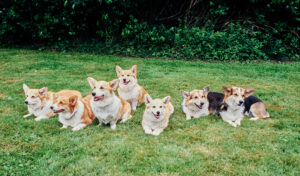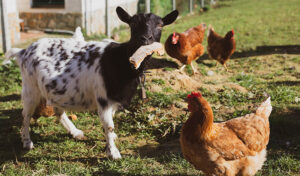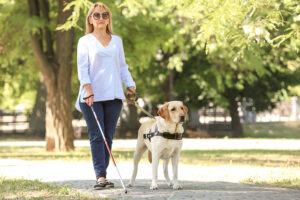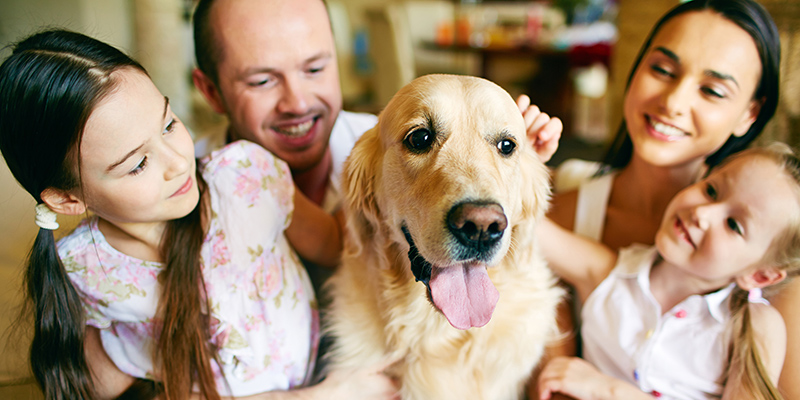Homeowners associations are known for imposing strict rules that preserve the character of the community. And, in between architectural guidelines and maintenance obligations, one of the most popular is an HOA pet policy.
What Is an HOA Pet Policy?
A pet policy is exactly what it sounds like — it is a policy that regulates pets in HOA or condo communities. Generally speaking, homeowners associations do have the ability to enforce pet restrictions and even prohibit pets altogether, provided their governing documents permit.
However, it is important to keep in mind that some state laws may supersede the community’s rules. For instance, California Civil Code § 4715 states that no HOA can prohibit owners from keeping at least one pet. And this applies to all governing documents that are created or amended on or after January 1, 2001.
But, why are pets not allowed in some condominiums and HOAs? There are a few possible reasons:
- Prevent noise complaints from neighbors
- Avoid problems with cleanliness in common areas
- Prevent pests from taking over the community
- Avoid unsavory smells
- Maintain safety in the community
Most Common HOA Pet Restrictions
While there are some communities that ban pets completely, many simply enforce restrictions. Some of the most common HOA pet policies include the following:
 1. Number of Pets
1. Number of Pets
Many associations only allow homeowners to keep up to a certain number of pets. This gives the HOA more control over the pet population in the community. More often than not, this rule exists in conjunction with other rules on this list.
2. Types of Pets
When it comes to homeowners association pet restrictions, a popular one has to do with the type of pets. Many communities strictly regulate the types of pets owners can keep. Typically, only domesticated animals such as dogs, cats, birds, and fish are permitted. But, there are some that allow other types as well.
3. Breeds of Pets
Beyond simply regulating the types of pets owners can have, associations often take it one step further. An association that allows dogs, for instance, might only allow certain breeds. Associations usually don’t let owners keep dog breeds that are considered “aggressive,” though there is some debate surrounding this issue.
 4. Registration Required
4. Registration Required
Homeowners associations will sometimes require members to register their pets with the HOA. Maintaining a registry allows the association to monitor the number of pets in the community and keep track of who owns which pet. Additionally, an association might mandate owners to keep up with all the vaccinations that their pets are required to get.
5. Waste Cleanup
Cleanliness is a top concern when it comes to pets in HOA communities. After all, no one wants to live in a neighborhood where pet waste litters the streets. As such, it is common for associations to require owners to pick up after their pets.
6. Leashes and Cages
Some pets can put the safety of residents at risk. Due to this, many associations require owners to keep their pets leashed or caged when outside of the house as part of their HOA dog rules. Oftentimes, associations also don’t allow pets in common amenities such as clubhouses, pools, and fitness centers.
Unusual Pets: Goats and Chickens
 Dogs, cats, birds, and fish are the most common pets that owners keep. But, there are also homeowners who wish to keep goats or chickens in their backyards. This poses a dilemma for a lot of HOA communities.
Dogs, cats, birds, and fish are the most common pets that owners keep. But, there are also homeowners who wish to keep goats or chickens in their backyards. This poses a dilemma for a lot of HOA communities.
First of all, if the association restricts the types of pets owners can have, then this is a moot point. If chickens and goats are not part of the list of permitted pets, then owners can’t keep them. Of course, owners can certainly ask the board to reconsider, though there is no guarantee.
Goats have become more favored in some communities. This is because goats can help with landscaping maintenance. Goats naturally control vegetation in lawns and yards. They are also a more environmentally-friendly solution compared to machines and chemicals.
Chickens have also grown in popularity over recent years. They are a good source of fresh eggs, are pretty low maintenance, and don’t cost much to look after. Owners, though, have to keep them in coops.
But, goats and chickens also have their downsides. Their droppings can be very smelly, they tend to make a lot of noise, and they can attract wildlife. Other than that, there is always the possibility that they will escape and run amok in the neighborhood.
When it comes to these unconventional pets, associations should consider the pros and cons carefully. It really boils down to the nature of the association and deciding on what’s best for the community. Keep in mind that just because local ordinances allow owners to keep goats or chickens doesn’t automatically mean they supersede the association’s rules.
HOA Pet Policy: Establishing Owner Liability
When owners violate the HOA pet policy, they should face some sort of penalty. Depending on state laws and the HOA’s governing documents, an association may be able to charge a fine for every violation. These fines can even add up for each day the violation remains unresolved.
Apart from putting an enforcement system in place, though, associations should also establish owner liability. This is a fundamental rule that HOAs should have if it allows pets in the community. Such a policy basically states that pet owners are accountable for the actions of any pets they keep in their house or unit. Owners must indemnify the association for any damage, injury, or loss resulting from or caused by their pets.
Establishing a liability policy helps protect the association from legal issues. This, in turn, will reduce the likelihood of the association getting involved in reputation-damaging lawsuits. It can also save the association money on costly legal proceedings.
Service Animals in HOA Communities
 The Fair Housing Act and Americans With Disabilities Act provide certain protections for persons with disabilities who require service or assistance animals. Homeowners associations should, therefore, make reasonable accommodations. If an HOA has a no-pets policy, that policy generally does not apply to service animals or assistance animals. Associations also can’t restrict the breed, weight, or size of the animal. Moreover, such animals typically can occupy or enter all areas of the property.
The Fair Housing Act and Americans With Disabilities Act provide certain protections for persons with disabilities who require service or assistance animals. Homeowners associations should, therefore, make reasonable accommodations. If an HOA has a no-pets policy, that policy generally does not apply to service animals or assistance animals. Associations also can’t restrict the breed, weight, or size of the animal. Moreover, such animals typically can occupy or enter all areas of the property.
That being said, owners are still responsible for the behaviors or actions of their service or assistance animals. If the animal poses a direct threat to the safety or health of other residents, and no other reasonable accommodation can fix it, then the HOA may refuse the animal. However, it is best to tackle such issues on a case-to-case basis.
Avoiding Pet Problems in the HOA
It may seem unfair, but most homeowners associations do have the authority to regulate or even outright prohibit pets. To avoid penalties and problems with the association, homeowners should make it a point to review the HOA pet policy in their community. Boards, in turn, should educate homeowners and keep them up-to-date on any changes to the policy.
Condo Manager has the answer to all your HOA management needs. Our HOA management software comes with all the features necessary to ensure the smooth operation of your community. Call us today at (800) 626-1267 or contact us online for a free demo!
RELATED ARTICLES:
- Top 10 Important HOA Rules Every Homeowner Should Know
- Can Homeowners Be Asked To Remove American Flag In HOA Communities?
- A Guide For Homeowners Who Want Architectural Changes In HOA Homes



